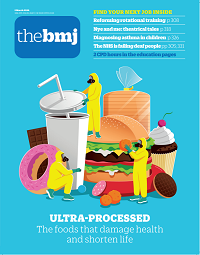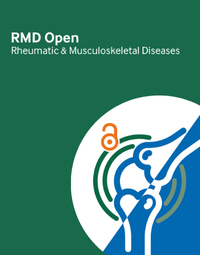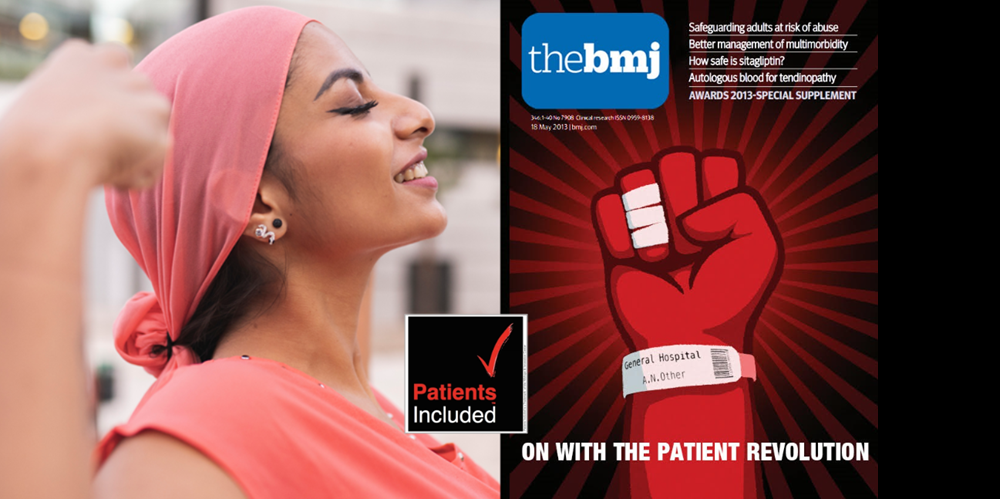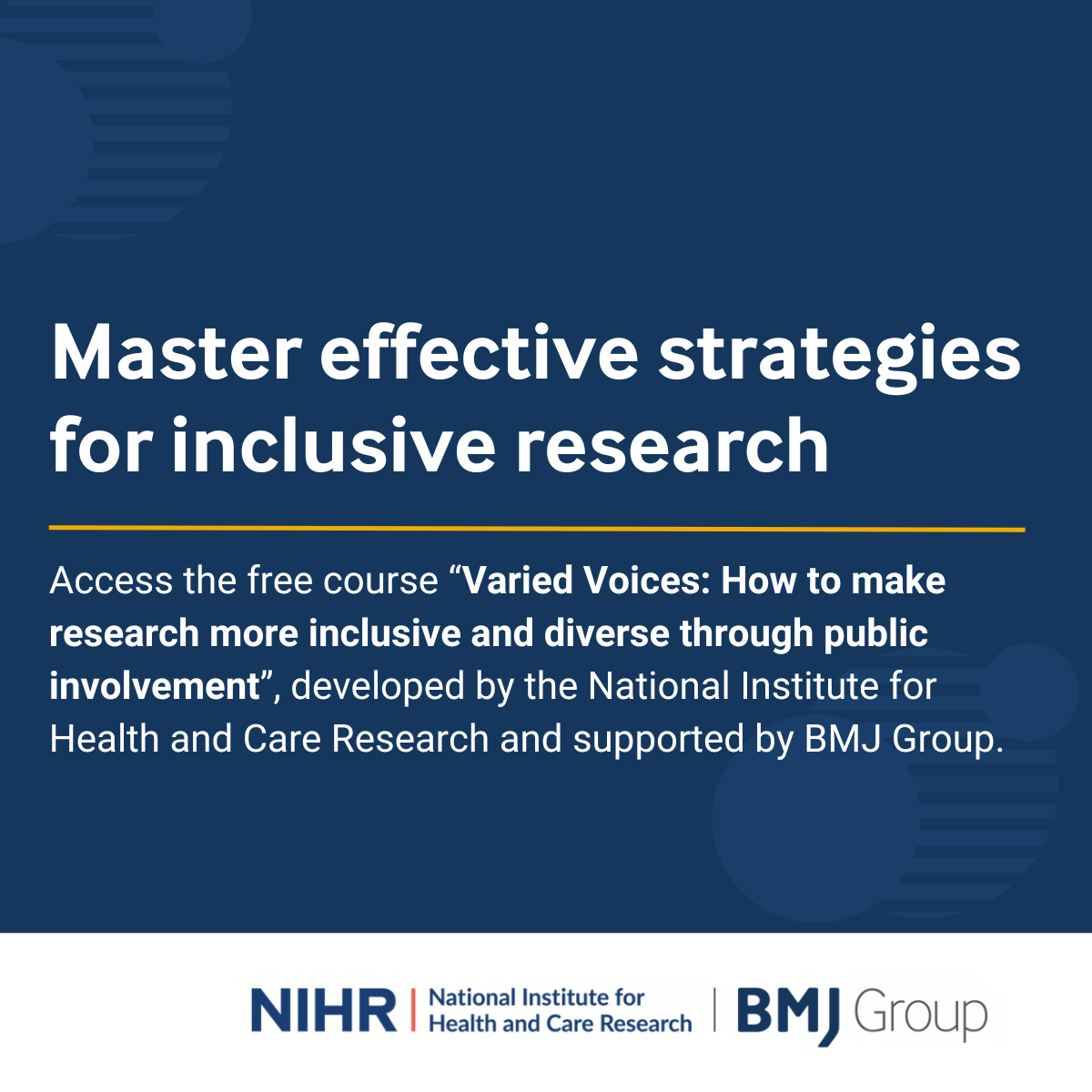Leading medical publisher
For more than 185 years, we have been publishing some of the most influential and trusted titles in health and medicine. Today, our portfolio of over 65 journals spans clinical specialties, public health, and emerging fields. Each title responds to the needs of the medical communities we serve, providing reliable, evidence-based research that informs policy, guides clinical practice, and shapes the future of global health.
BMJ Group is pleased to announce the appointment of Niels Peter Thomas as CEO, BMJ Publishing, effective 15 April 2026.
Niels will lead all global publishing activities for the healthcare knowledge provider. This includes the world-renowned journal The BMJ, and nearly 70 speciality journals, alongside the Group’s Events, Careers, and Learning businesses.
Niels brings over 20 years of international leadership experience within the Springer Group. He joins from Springer Nature, where he most recently served as Executive Vice President/Managing Director, Books, overseeing the world’s largest academic books programme. His previous roles include President of Springer Nature Greater China and Managing Director for the Iversity e-learning platform.
Niels Peter Thomas commented: “I am excited to join BMJ Group at this important time in its international growth journey. I look forward to working with a team of highly respected publishing leaders and collaborating with researchers and partners to ensure sustainable growth that delivers a long-term positive impact globally”.

Niels Peter Thomas, newly appointed CEO, BMJ Publishing
Our approach is helping close the knowledge gap. In early 2025, nearly 95% of all LMIC originated research was published open access, up from 36% in 2021 and 56% in 2022.
Retaining impressive rankings
The Journal Impact Factor (JIF) is a widely used measure of average citations. It is often seen as a sign of a journal’s influence, but no single metric tells the whole story.
As a DORA signatory, BMJ Group supports a more balanced view of research impact. Alongside JIF, we share CiteScore, Altmetric mentions, time to first decision, and more, all available on our journal sites. These metrics help institutions assess quality, reach and speed, and make informed decisions about where to subscribe and publish.
British Journal of Sports Medicine
Number 1 out of 133
in Sports Sciences
16.2 JIF | 21 CiteScore

Journal of NeuroInterventional Surgery
Number 2 out of 16
in Neuroimaging
4.3 JIF | 8.8 CiteScore

GUT
Number 4 out of 147
in Gastroenterology & Hepatology
25.8 JIF | 46.7 CiteScore

Tobacco Control
Number 4 out of 58
in Substance Abuse
4.7 JIF | 9.8 CiteScore

BMJ Quality & Safety
Number 4 out of 124 in Health Policy & Services
9 out of 185 in Health Care
6.5 JIF | 10.9 CiteScore

Family Medicine and Community Health
Number 4 out of 28
in Primary Health Care
4.3 JIF | 5 CiteScore

Journal of Medical Ethics
Number 4 out of 23 in Medical Ethics
7 out of 48 in Social Sciences, Biomedical
8 out of 68 in Social Issues
8 out of 77 in Ethics
3.4 JIF | 8.1 CiteScore

The BMJ
Number 5 out of 332
in Medicine, General & Internal
42.7 JIF | 20.4 CiteScore

BMJ Mental Health
Number 6 out of 288
in Psychiatry – Clinical Medicine
11.4 JIF | 7.9 CiteScore

RMD Open
Number 7 out of 58
in Rheumatology
444.7 JIF | 7.6 CiteScore

Thorax
Number 8 out of 108
in Respiratory System
7.7 JIF | 16.8 CiteScore

Regional Anesthesia & Pain Medicine
Number 10 out of 68
in Anethesiology
3.5 JIF | 9.6 CiteScore

BMJ Sexual & Reproductive Health
Number 10 out of 48
in Social Sciences, Biomedical
2.8 JIF | 6.3 CiteScore

Emergency Medicine Journal
Number 10 out of 56
in Emergency Medicine
2.4 JIF | 4.7 CiteScore

BMJ Medicine
Number 11 out of 332
in Medicine, General & Internal
10 JIF | No CiteScore

Why partner with BMJ Group?
By partnering with royal colleges and leading scholarly and professional medical organisations, we ensure the publication of the latest and most relevant research. This collaboration benefits health professionals everywhere by providing access to cutting-edge medical knowledge and evidence-based practices.
As a wholly owned subsidiary of the British Medical Association (BMA), we understand the challenges faced by membership organisations.

Our mission and values
BMJ Group is a global healthcare knowledge provider with a vision of a healthier world. We share knowledge and expertise to improve patient outcomes.
Our values and vision of a healthier world define our actions and behaviours. We publish, convene and collaborate in a way which is ethical, sustainable, efficient, and equitable.
Our values
Our values give us the focus and direction to bring about our vision for a healthier world by sharing knowledge and expertise to help health professionals improve healthcare outcomes.

For decades, research publishing followed a fixed script. Researchers investigated. Publishers validated, polished and shared their findings. Patients, if mentioned, were the subjects of the research, not contributors to it.
That model is shifting. Across the publishing industry, there’s growing recognition that people with lived experience of illness, disability or care are more than passive recipients of information. They’re experts in their own right — and they’re helping to make research more relevant, ethical and trustworthy.
This isn’t about tokenistic patient stories or soft human interest. It’s about integrating meaningful public perspectives into publishing systems and processes, and asking how we might build platforms that are not just academically rigorous but genuinely useful to those most affected by them.
Making patient and public partnerships an ethical imperative
The BMJ is the first ever medical journal to receive the ‘Patients Included’ award for its strategy to encourage doctors and patients to work together as partners to improve healthcare. This important initiative has rippled across the business, with 75% of BMJ Events advisory committees including at least one patient, and 90% of all BMJ Best Practice leaflets have been reviewed by a patient panel.

Impact beyond the headlines
Research published in The BMJ often ignites immediate discussion, but its influence reaches far beyond academic citations.
A striking example is the 2024 study Ultra-processed food exposure and adverse health outcomes: umbrella review of epidemiological meta-analyses by Dr Melissa Lane and colleagues from Deakin University, Australia. Their work found consistent evidence linking high consumption of ultra-processed foods to increased risks of 32 serious health outcomes, including cardiovascular disease, mental health disorders, and premature death.
Following a global press release by BMJ Group’s media relations team, the study achieved remarkable and swift reach across 450 news outlets. In addition, it garnered attention well beyond news headlines. To fully understand its impact, we turn to BMJ Impact Analytics, which tracks citations in policy documents, reports, and influential analyses, areas that conventional metrics often overlook.
This deeper insight reveals that the study ranks in the top 1% of outputs from The BMJ. It has been cited in 11 UK Parliament select committee reports, three Food Foundation publications, five United Nations documents, and major reports from the Food, Farming and Countryside Commission, the World Bank, and the
World Food Programme. Most recently, it was cited by the American Council on Science and Health.

Everything we do is evidence-based. We carefully create and curate the evidence we share to drive better patient care within the spirit of openness and transparency.
Anca Babor
Director Customers and Markets, Publishing & Events

Opportunities and threats in academic media
The academic publishing landscape is changing, driven by digital platforms that speed dissemination but also raise concerns about misinformation. Institutions and publishers must prioritise digital excellence and peer reviewed content to safeguard research integrity.
Generative artificial intelligence (AI) has potential to improve research workflows and expand access, but it also presents risks. These include misinformation and threats to research integrity. Publishers have an opportunity to integrate AI tools that support credibility and trust. Key questions are whether to accept AI assisted research for publication and how to incorporate AI into decision making.
Click through to see how Anca Babor of BMJ Group explores how academic media must balance digital innovation with integrity, covering AI, open access, sustainability, and the vital fight against misinformation.
Ensuring users can trust the integrity of all the content we publish
The content we publish is always of the highest standards, ensuring its reliability to influence care. Our dedicated Content Integrity team focuses on upholding the highest standards of research integrity and publishing ethics. Their role is pivotal in maintaining robust editorial practices. By preventing, detecting, investigating, and advising on integrity breaches, they always prioritise the safety of patients and the public. This relentless commitment to content integrity reassures authors, readers, funders, and institutions of the reliability of our publications.
Our Content Integrity team’s key responsibilities include:
We contribute regularly to guidelines and discussion documents created by the Committee on Publication Ethics (COPE). As co-authors of official COPE guidance, we address issues such as manipulation of the publication process and recently collaborated on developing disclaimers and guidance for dealing with historically offensive content.
By continually advancing our practices and policies, we ensure that institutions can trust us to uphold the highest standards of integrity in research publications.
Correcting the record to enhance patient care
Retractions play a vital role in maintaining the integrity of academic publishing and ensuring research credibility. While they are often viewed negatively due to concerns about reputational damage and career impact, BMJ Group sees them as crucial to scientific progress. They improve quality and rigour, reinforce trust, refine evidence, and improve patient care.
After identifying a methodological error, Dr Brian Nicholson and colleagues at Oxford retracted and republished their study on unexpected weight loss and cancer in The BMJ. The updated 2023 analysis, based on over 326,000 patients, found nearly 5% were diagnosed with cancer within six months—up from 1.5% in the original 2020 results. These findings informed new NICE guidance, recommending urgent cancer referrals for men 50+, women 60+, and younger patients with specific symptoms, while expanding recognised cancer features to improve diagnostic accuracy.
We found the journal very responsive to our approach for advice about what we should do next.”
Brian D Nicholson
Academic clinical lecturer, associate professor, and general practitioner, Oxford University, UK
Advancing scientific discovery through open access
We support the transition of publicly-funded research to open access and are increasing the reach and utility of what we publish, actively reshaping how medical research is conducted and disseminated.
The BMJ ‘s research has always been free to read, and in 2011 we launched our first and largest open access medical journal, BMJ Open.
Today, a third of our journals are fully open access, and we also make academic research freely accessible and discoverable with hybrid publication models.
We offer different types of open access agreements to help your researchers publish their work in leading scientific journals at a reduced cost while complying with open access mandates.

Our approach is helping close the knowledge gap. In early 2025, nearly 95% of all LMIC originated research was published open access, up from 36% in 2021 and 56% in 2022.
Local solutions, global impact
For over 20 years, we’ve amplified underrepresented voices in research. Since introducing full article processing charge (APC) waivers in 2022, we’ve granted 70% more waivers to authors from low and middle income countries (LMICs) compared to the three years before the policy began. In the past year alone, nearly 10% of the open access research we published came from LMIC authors.
We have also provided free online access to our journals through Research4Life (R4L), giving more than 11,000 institutions in 125 low and middle income countries access to research.

Supporting significant research output in lower-middle income countries
Since 2002, BMJ Group has actively participated in the the World Health Organization‘s Research4Life Health InterNetwork Access to Research Initiative (HINARI) programme, allowing developing countries to access over 8500 journals and 7000 e-books. This initiative benefits thousands of health workers and researchers in more than 100 countries, improving global health.

How Ugandan research shaped covid-19 treatment
In August 2021, Dr Bruce Kirenga and his team at the Makerere University Lung Institute published a pivotal study in BMJ Open Respiratory Research on the efficacy of convalescent plasma for covid-19 treatment in Uganda.
The study’s findings on the limited efficacy of convalescent plasma (CP) helped shape major treatment guidelines. In Therapeutics and COVID-19: Living
guideline, the World Health Organization (WHO) strongly advises against CP for all severity levels of covid-19 due to limited benefit and potential safety
risks. The National Institutes of Health similarly recommends against CP outside of clinical trials, except in rare cases involving immunocompromised
patients. The European Medicines Agency (EMA) also discourages routine use, reinforcing a shift towards more effective therapies like antivirals and
monoclonal antibodies.
Where most publications in the biomedical and clinical sciences field receive only two to three citations, this study has far exceeded that benchmark. BMJ
Impact Analytics shows 46 citations in health policy, eight in clinical guidance, and uptake across five countries.7 Such reach underlines its role in shaping
evidence informed global health practice.

Improving the openness and accessibility of scientific findings
We know that early access to research results accelerates the pace of medical discovery. That’s why we want to reshape the way medical research is conducted and disseminated; by making preprints mainstream. BMJ Group is a part of initiatives like Initiative for Open Citations (I4OC) and Initiative for Open Abstracts (I4OA), making it easier for articles to be found, read and cited.
In 2019, BMJ Group co-launched the preprint server for Health Sciences, medRxiv, with Yale University and Cold Spring Harbour Laboratory. It is the first health sciences preprint server and it allows fast sharing of preliminary research findings to the widest possible audience.
MedRxiv encourages our authors to post their research as preprints. We have also invested in integrating medRxiv with our journals platform to make the submission process easier for authors and to further speed up routes to the publication of peer-reviewed evidence.
Advancing real world impact assessment with BMJ Impact Analytics
Research that improves patients’ lives matters deeply to the funders, institutions and researchers who dedicate their resources to medical and health research. But evaluating the impact of this research on policy and guidelines is traditionally measured by standard scholarly metrics in the absence of more targeted analysis that relates explicitly to health improvement.
BMJ Group and the pioneering technology start-up, Overton, set out to address this challenge by collaborating to develop BMJ Impact Analytics, the first research impact tool focused on health and social care. It was launched in January 2023, and, by that following June, won the prestigious Association of Learned and Professional Society Publishers (ALPSP) Award for Innovation in Publishing 2023.

“We chose to partner with BMJ Group because of their expertise and reach in the medical research community. Their existing relationships and global presence made the organisation a valuable partner. Additionally, BMJ Group ’s mission-driven approach aligned with our values at Overton.”
Euan Adie
Founder and Director Overton

BMJ Impact Analytics
Helping researchers, institutions, and partners to:
🧩 Prove influence: evidence of real world policy citations to help strengthen future funding bids
🌐 Stay relevant: understand how and where research is being used
🚦 Inform strategy: use citation insights to guide future publications and stakeholder engagement
🛡️ Demonstrate accountability: especially vital for organisations producing commissioned research
As funders increasingly demand proof that research leads to real change, BMJ Impact Analytics helps researchers secure future funding by clearly demonstrating the impact of their work on academic knowledge and clinical practice.
How the Office of Health Economics uses BMJ Impact Analytics to demonstrate value to funders
BMJ Impact Analytics is a powerful tool designed to track where and how health research is being used in an academic context to improve health outcomes, in policy documents, clinical guidelines, and even at the point of patient care.
The tool filled a critical gap for the Office of Health Economics (OHE) by allowing the organisation to track how its research and policy outputs affect healthcare guidelines worldwide.
“BMJ Impact Analytics has given us valuable insight into how our research is being received and used. It’s helped us stay relevant and responsive without compromising our integrity. That was the missing piece for us.” Charlotte Ashton-Khan, director of external affairs, Office of Health Economics
Using BMJ Impact Analytics, OHE discovered that policymakers and guideline developers had cited 27% of their research outputs—four times the global average of under 6%. For an organisation that conducts commissioned research, this visibility is vital. It helps them demonstrate value to funders and reinforces the credibility and reach of their work.
The tool also helped OHE uncover real world uptake of specific research. One example is an OHE paper, “New Drugs to Tackle Antimicrobial Resistance”, which BMJ Impact Analytics shows was cited by policy documents in three countries, showcasing its role in shaping international approaches to a global health threat.
Even more, BMJ Impact Analytics confirmed that some of the most influential health agencies have cited research by OHE senior economist Grace Hampson on real world evidence for coverage decisions. Notably, the US Agency for Healthcare Research and Quality (AHRQ), Canada’s Institut national d’excellence en santé et en services sociaux (INESSS), and the Australian Government Department of Health have included this work in their policy and clinical guidance. This recognition underlines OHE’s global role as a trusted voice in evidence based healthcare funding.
BMJ Impact Analytics has given us valuable insight into how our research
is being received and used. It’s helped us stay relevant and responsive without compromising our integrity. That was the missing piece for us.”Charlotte Ashton-Khan
Director of external affairs, Office of Health Economics

“The opportunities that BMJ Group presents through the events they lead are far reaching. They have the potential to change perceptions and mindsets of both healthcare professionals and the regulators of the healthcare systems within which they operate.”
Ian Leistikow
Inspector at Dutch Health and Youth Care Inspectorate and Professor at Erasmus University
Bringing together experts in diverse fields
Our privileged networks include close relationships with corporations, foundations, multilateral organisations, non-governmental organisations, and governments.
Our collaboration with these industry experts help us to look beyond healthcare to address issues such as sustainability, poverty reduction, gender and health inequalities, and the changing shape of academic research.
We can then share and compare knowledge through large and small-scale events, webinars and roundtables, while also contributing to the editorial BMJ Collection series.
Connecting communities
Events
From conferences to masterclasses, webinars to roundtables, our events are high-profile networking opportunities where health professionals can convene to exchange insights, share best practices, unveil cutting-edge research, and collectively address patient safety threats.
Events

Varied voices: How to make research more inclusive and diverse through public involvement (Free & accredited)
Categories:BMJ Group has partnered with the National Institute for Health and Care Research (NIHR) to strengthen how people and communities are involved in medical research. Varied Voices, a free online course developed by NIHR and supported by BMJ Learning, helps healthcare professionals understand how inclusion and diversity improve the quality ...

Varied voices: How to make research more inclusive and diverse through public involvement (Free & accredited)
Categories:BMJ Group has partnered with the National Institute for Health and Care Research (NIHR) to strengthen how people and communities are involved in medical research. Varied Voices, a free online course developed by NIHR and supported by BMJ Learning, helps healthcare professionals understand how inclusion and diversity improve the quality ...

Driving global consensus on Alzheimer’s disease imaging
The Alzheimer’s disease imaging roundtable, hosted in Chengdu in partnership with the Department of Radiology at West China Hospital of Sichuan University and the Journal of Neurology, Neurosurgery & Psychiatry (JNNP), is just one example of how we deliver this value in action.





